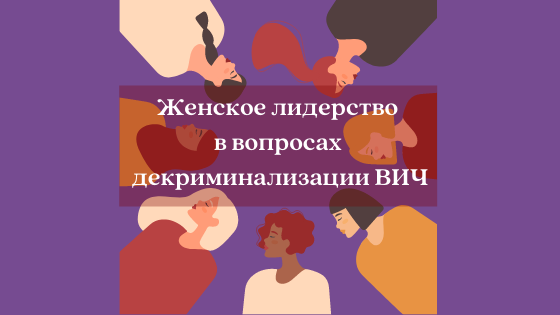
The team of the project “HIV Criminalization Scan in EECA Region”, Eurasian Women’s Network on AIDS , created a digest “Women’s Leadership for HIV Decriminalization: EECA Region Experience”. It describes the experience of female leaders, experts and civil society activists in HIV decriminalization and related advocacy, research and activism.
The collected materials highlight the scale of HIV as a global problem and how it is connected with gender inequality. The results of the research conducted by the women’s community, examples of documented personal stories and court sentences clearly demonstrate that HIV criminalization not only fails to protect women from being infected, but actually worsens their position in society.
Laws that promote HIV criminalization make women more vulnerable in the face of growing violence and structural inequality related to HIV, because:
- Breastfeeding can be used as a means of direct influence;
- Women living in discordant couples are persecuted even if they use condoms and/or have undetectable viral load, including cases where partners give voluntary consent to sexual intercourse;
- Confidential medical information is illegally forwarded to law enforcement bodies.
HIV criminalization in EECA region is directly connected with other kinds of criminalization – drug use, drug possession, and sex work that increase the burden of discrimination, abuse of rights and abuse of women living with HIV.
The digest contains the following chapters:
- What is criminalization and how it harms people living with HIV and society in general
- Why HIV criminalization puts women in a vulnerable position
- Conducting research based on women’s community
- Collection of gender disaggregated data. Comparative analysis of court sentences
- CEDAW and HIV criminalization
- Breastfeeding as a weapon against women living with HIV
- Documenting cases of blackmailing HIV-positive women and threats to employ criminal law: mediation examples
- The role of mass media in demonizing women living with HIV: example of Tajikistan
- HIV and labor law: example of Uzbekistan
- Participation of women activists in Forums for judges
- Elimination of vertical transmission and HIV criminalization
Women’s community mobilization, meaningful participation of HIV-positive women and their allies in advocacy for legislative changes, protection of rights and submitting alternative reports to UN Committees are the necessary conditions required to fully confront HIV criminalization.
Authors: Natalia Sidorenko, Svetlana Moroz.
Editor: Vladimir Kosenko
The book was prepared by the Eurasian Women’s Network on AIDS and the Global Network of People living with HIV under the name of HIV JUSTICE WORLDWIDE. Financed by the Robert Carr Fund.



